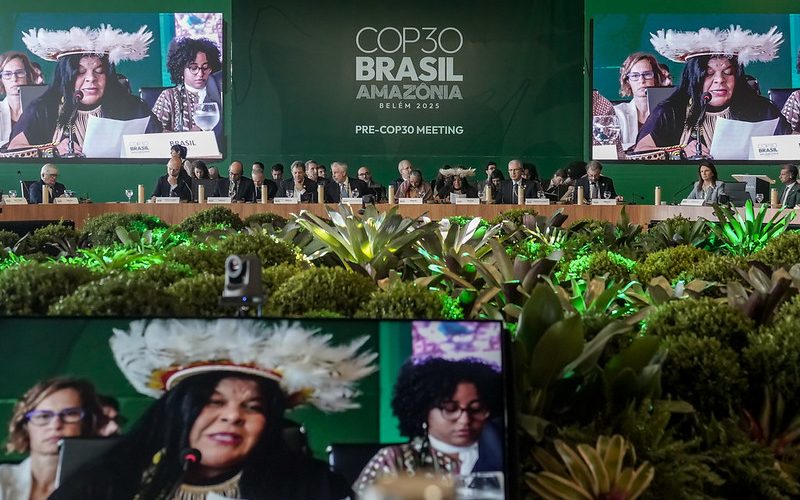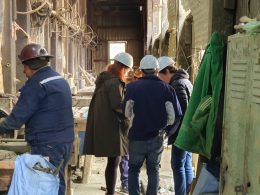Brazil on Monday opened three weeks of events leading up to the COP30 climate summit, aiming to demonstrate continued global determination to fight climate change — despite a year marked by economic disruption, geopolitical conflict, and wavering U.S. commitments.
In São Paulo, business leaders gathered to call for stronger policies to finance the clean-energy transition. In an open letter signed by 35 business coalitions representing 100,000 companies, they urged governments to “urgently” introduce incentives for renewable energy adoption to replace fossil fuels.
“It’s a recognition from the business community of the importance of multilateralism and of raising ambition,” said Maria Mendiluce, CEO of the We Mean Business Coalition, which coordinated the appeal.
At the same time, Rio de Janeiro hosted a Local Leaders Summit attended by mayors, governors and subnational representatives — though the gathering risked being overshadowed by protests following a recent violent police crackdown. Elsewhere in the city, Britain’s Prince William presided over the annual Earthshot Prize ceremony honouring outstanding environmental achievements.
Waning momentum ahead of COP30
Despite the activity, this year’s climate calendar reflects growing challenges for international cooperation. Trade tensions, wars and erratic U.S. tariffs have shaken investor confidence, while Washington’s reversals on clean-energy policy have further clouded prospects. Although renewable energy is now cheaper than fossil fuels, many nations are prioritising food security and artificial intelligence development over climate investment.
“It makes strong business sense and ensures energy security and competitiveness,” said Gonzalo Sáenz de Miera, chair of the Spanish Green Growth Group, reiterating calls for governments to keep clean energy policies at the forefront.
The road to Belém
Brazil’s turn as host coincides with the 33rd anniversary of the Rio Earth Summit, where nations first committed to tackling global warming under a UN treaty. While that pact slowed the pace of emissions growth, it has not reversed the overall rise — with about 40% of all industrial-era emissions released since its signing.
The main COP30 summit, scheduled for 10–21 November in the Amazon city of Belém, is expected to draw fewer participants than recent editions. As of early October, just 12,200 delegates had registered, compared with 54,000 at COP29 in Baku and nearly 84,000 at COP28 in Dubai. Limited accommodation and high hotel prices have forced some countries to reduce their delegations.
For the leaders’ summit on 6–7 November, fewer than 60 heads of state have confirmed attendance — down from more than 80 last year.
“It’s inspiring to see so many business leaders and mayors converge in Brazil ahead of COP30, showcasing their climate action and seeking opportunities to collaborate and accelerate progress,” said Dan Ioschpe, chair of Ioschpe-Maxion, who is leading private-sector engagement for the summit.
Indigenous voices take centre stage
Brazil deliberately chose Belém as the host city to highlight the Amazon and indigenous stewardship of the rainforest. A flotilla of indigenous leaders and activists is travelling down the Amazon River toward Belém, carrying a list of conservation demands to present to world leaders later this week. Many plan to camp in the surrounding rainforest during the summit to symbolise their call for inclusion and protection of the Amazon’s ecosystems.
As COP30 approaches, Brazil hopes the Amazon backdrop — and the growing involvement of local and corporate actors — will renew momentum for global climate cooperation, even as world leaders face their toughest test of unity in years.
















